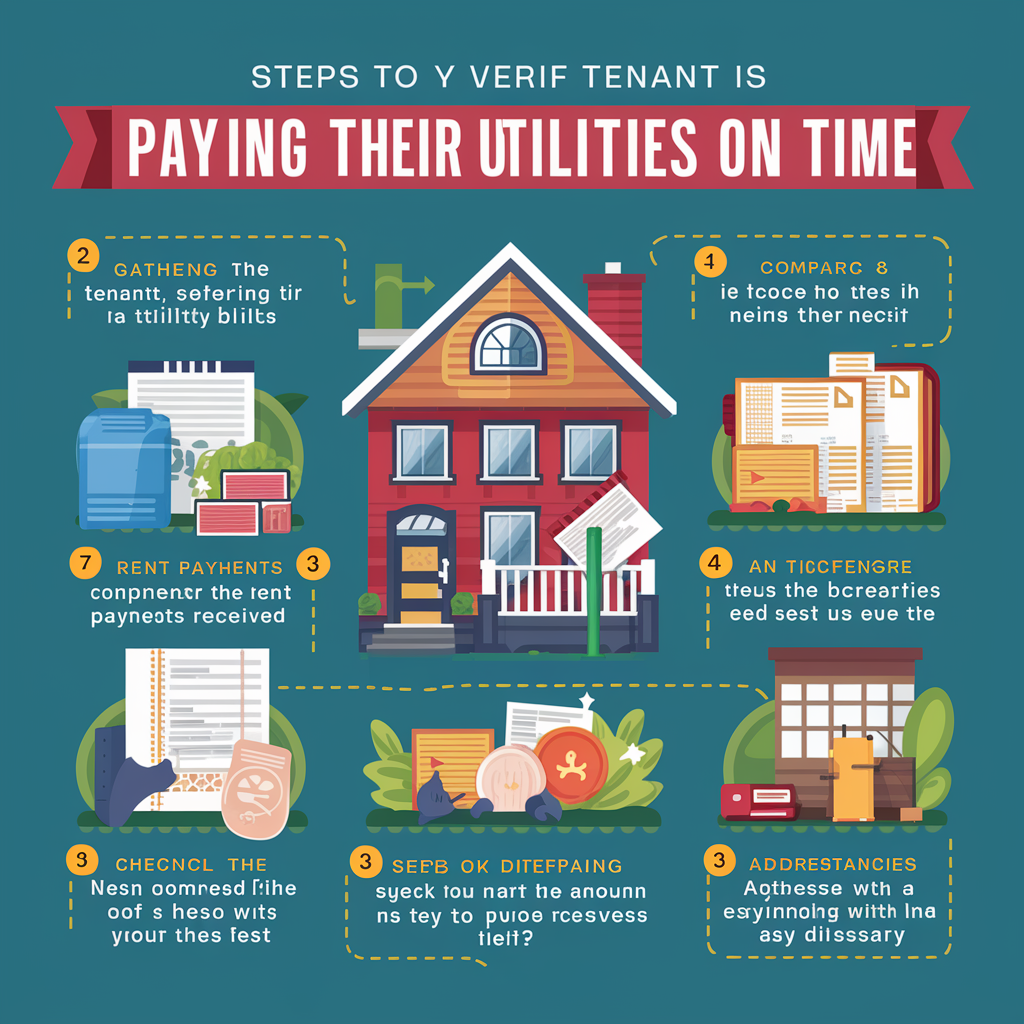Understanding Tenant Responsibilities: Guide to Bills and Utilities

As a tenant, navigating the world of bills and utilities can be overwhelming. It’s crucial to understand your financial responsibilities to avoid unexpected costs and maintain a positive relationship with your landlord. This comprehensive guide will walk you through everything you need to know about bills and utilities as a renter, ensuring you’re well-informed and prepared for your tenancy.
- Understanding Tenant Responsibilities: Guide to Bills and Utilities
- 1. The Basics: What Bills Are Typically a Tenant's Responsibility?
- 2. Council Tax: Understanding Your Liability
- 3. Energy Bills: Electricity and Gas
- 4. Water Bills: What You Need to Know
- 5. Internet and Phone Services: Staying Connected
- 6. TV License: Legal Requirements
- 7. Additional Costs to Consider
- 8. Understanding Your Tenancy Agreement
- 9. Tips for Managing Bills as a Tenant
- 10. Dealing with Bill Disputes
- 11. Energy Performance and Your Rights
- 12. Preparing for Seasonal Bill Changes
- Conclusion
1. The Basics: What Bills Are Typically a Tenant’s Responsibility?
When you rent a property, certain bills are usually your responsibility. These often include:
- Council Tax
- Electricity
- Gas
- Water
- Internet and phone services
- TV license
However, it’s essential to note that these can vary depending on your tenancy agreement. Always carefully review your contract to understand your specific obligations.
2. Council Tax: Understanding Your Liability
Council tax is a significant expense for most tenants. Here’s what you need to know:
- As a tenant, you’re typically responsible for paying council tax
- The amount varies depending on your local authority and the property’s band
- Some tenants may be eligible for discounts or exemptions
Council tax is used to fund local services such as waste collection, road maintenance, and emergency services. The amount you pay is based on the value of the property you’re renting and is divided into bands from A (lowest) to H (highest).
There are several circumstances where you might be eligible for a discount or exemption:
- Single person discount: If you’re the only adult living in the property, you may be entitled to a 25% discount
- Student exemption: Full-time students are usually exempt from paying council tax
- Disability reduction: If you or someone you live with has a disability that requires extra space in the home, you may be eligible for a reduced rate
It’s important to contact your local council as soon as you move in to ensure you’re paying the correct amount. For more information on council tax bands and potential discounts, visit the official UK government website.
3. Energy Bills: Electricity and Gas
Managing your energy bills is crucial for maintaining a comfortable living environment while keeping costs under control. Consider the following:
- You’re usually responsible for electricity and gas bills unless stated otherwise in your tenancy agreement
- Compare energy suppliers to find the best rates: Ofgem’s guide to switching suppliers
- Implement energy-saving measures to reduce your bills
When you first move into a rental property, it’s important to take meter readings and inform the current energy supplier. This ensures you’re only billed for the energy you use. You also have the right to switch energy suppliers if you find a better deal, but it’s courteous to inform your landlord of any changes.
To keep your energy bills under control:
- Use energy-efficient appliances and light bulbs
- Turn off lights and electronics when not in use
- Use draft excluders and ensure proper insulation
- Consider a smart meter to monitor your energy usage in real-time
If you’re struggling with energy bills, speak to your supplier about payment plans or check if you’re eligible for government schemes like the Warm Home Discount.
4. Water Bills: What You Need to Know
Water bills can be handled differently depending on your location and tenancy agreement:
- In most cases, tenants are responsible for water bills
- Some landlords may include water charges in the rent, especially for houses in multiple occupation (HMOs)
- Water bills are typically paid to the local water company
Unlike energy, you can’t switch water suppliers as they’re determined by your geographical location. However, you can still take steps to reduce your water usage and lower your bills:
- Fix any leaky taps or toilets promptly
- Take shorter showers instead of baths
- Use water-efficient appliances
- Collect rainwater for watering plants
If you’re having trouble paying your water bill, contact your water company. Many offer special tariffs or payment plans for those in financial difficulty.
5. Internet and Phone Services: Staying Connected
In today’s digital age, internet and phone services are essential. Here’s what to consider:
- Tenants are usually responsible for setting up and paying for these services
- Compare providers to find the best deals for your needs
- Check with your landlord before installing any new equipment or making changes to existing connections
When choosing an internet service provider:
- Consider your usage habits (streaming, gaming, working from home)
- Check the contract length and any early termination fees
- Look for bundle deals that might include TV packages
- Read customer reviews to gauge service quality and reliability
Remember, if you’re in a shared house, you might want to split the cost of a single, high-quality connection rather than each tenant having their own service.
6. TV License: Legal Requirements
Don’t forget about your TV license:
- If you watch or record live TV, or use BBC iPlayer, you need a TV license
- The responsibility for obtaining a TV license typically falls on the tenant
- For more information, visit the official TV Licensing website
A TV license currently costs £157.50 per year (as of 2021) for a color TV. You can pay this in one lump sum or spread the cost through direct debit payments. It’s important to note that you need a license even if you only watch TV on your computer, tablet, or phone.
If you don’t need a TV license (for example, if you only watch on-demand content through services like Netflix), you can declare this online. However, be aware that TV Licensing may still carry out checks to ensure you’re not watching live TV without a license.
7. Additional Costs to Consider
Beyond the standard bills, there may be other costs to factor into your budget:
- Contents insurance (to protect your personal belongings)
- Parking permits (if applicable in your area)
- Service charges (for apartments or managed properties)
Contents insurance is often overlooked by tenants, but it’s crucial for protecting your personal belongings. Your landlord’s insurance typically only covers the building and any furnishings they provide, not your personal items. Shop around for the best deal and ensure you’re adequately covered.
Parking permits can be a significant expense in urban areas. Check with your local council about the cost and application process. Some areas offer resident discounts, so be sure to inquire about these.
Service charges are common in apartment buildings or managed properties. These cover shared facilities and services like cleaning of common areas, lift maintenance, and security. Always check what’s included in your service charge and factor this into your budget.
8. Understanding Your Tenancy Agreement
Your tenancy agreement is the key to understanding your financial responsibilities. Always:
- Read the agreement carefully before signing
- Clarify any ambiguous points with your landlord or letting agent
- Keep a copy of the signed agreement for reference
Pay particular attention to clauses about:
- Rent payments (amount, due date, payment method)
- Deposit protection
- Bill responsibilities
- Maintenance and repairs
- End of tenancy obligations
If anything is unclear, don’t hesitate to ask questions. It’s better to clarify issues upfront than to face misunderstandings later.
9. Tips for Managing Bills as a Tenant
To stay on top of your bills and avoid financial stress:
- Set up direct debits to ensure timely payments
- Keep track of due dates and payment amounts
- Consider using budgeting apps or spreadsheets to manage your expenses
- Regularly review your bills and compare providers to ensure you’re getting the best deals
Creating a budget at the start of your tenancy can help you understand your monthly outgoings. Include all your bills, rent, and other regular expenses. Don’t forget to factor in one-off costs like contents insurance or parking permits.
It’s also a good idea to build up an emergency fund to cover unexpected expenses or periods where you might struggle to pay bills (for example, if you’re between jobs).
10. Dealing with Bill Disputes
If you encounter issues with your bills:
- Communicate with your landlord or letting agent promptly
- Keep records of all communications and payments
- Seek advice from organizations like Citizens Advice if needed
Common bill disputes include:
- Incorrect meter readings
- Bills from previous tenants
- Disagreements over responsibility for specific bills
If you’re unable to resolve a dispute with your landlord or utility provider, you may need to seek help from a tenancy dispute service or the Energy Ombudsman for energy-related issues.
11. Energy Performance and Your Rights
As a tenant, you have the right to know how energy efficient your rental property is. Landlords are required to provide an Energy Performance Certificate (EPC) for the property, which rates its energy efficiency from A (most efficient) to G (least efficient).
From April 2020, all rental properties must have a minimum EPC rating of E. If your property falls below this standard, your landlord is required to make improvements to bring it up to at least an E rating.
An energy-efficient home can significantly reduce your energy bills, so it’s worth discussing potential improvements with your landlord if you feel the property is not performing well.
12. Preparing for Seasonal Bill Changes
It’s important to be aware that your bills, particularly energy bills, can fluctuate seasonally. Here’s what to keep in mind:
- Winter months typically see higher energy usage due to heating and lighting needs
- Summer might bring increased water usage for gardens or more frequent showers
- Some utility companies offer fixed monthly payments based on estimated annual usage, which can help smooth out seasonal variations
Consider these seasonal changes when budgeting and try to set aside extra funds during lower-cost months to cover higher bills during peak seasons.
Conclusion
By understanding your responsibilities and staying organized, you can navigate the world of tenant bills with confidence. Remember, clear communication with your landlord and careful budgeting are key to a stress-free renting experience.
Being a responsible tenant not only ensures a good relationship with your landlord but also helps you maintain a stable financial situation. By staying informed about your bills and rights, you






